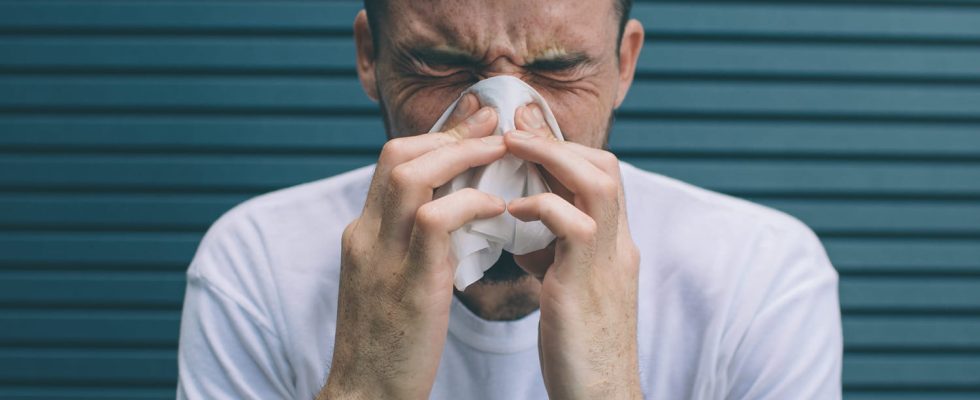English doctors report the case of a young man whose trachea was perforated because he held back from sneezing.
Out of respect for others, not to disturb, not to spread your germs to everyone, we generally take care to sneeze discreetly. But be careful do not hold back your sneeze to the extremewarn English doctors in the BMJ Case Reports after facing a case never seen before. This case is that of a british manof a thirty yearshaving a history of allergic rhinitiswho felt a very severe neck pain immediately after sneezed in his car. Suffering, he goes to the EMERGENCIES closest to be examined. He then denies any dyspnea (breathing difficulties), dysphonia (voice change) or dysphagia (difficulty swallowing).
“Crackles” when palpating the neck
On examination, the doctors found that his neck is swollen on both sides with slight “crackles” on palpation and a reduced range of motion. The pharynx and larynx are normal. The neck x-ray confirms a subcutaneous emphysema (which explains the crackling sounds heard by the doctors). Immediately after the X-ray, doctors order a CT scan of the neck and chest which then reveals unexpected : the man presents a tracheal tear of 2 mm × 2 mm × 5 mm between the third and fourth vertebra of the thorax. “Tracheal perforation following a sneeze has not been previously reported to our knowledge“ emphasize the doctors.
He shouldn’t have held his nose and shut his mouth
According to them, it was because the man stifled his sneeze by pinching his nose and closing his mouth that he had this tear. “Normally, the pressure in the airways higher during sneezing is 1 to 2 kPa (kilo Pascal) but if the mouth and nose are closed, it can increase up to 20 times. There trachea was perforated due to rapid build-up of pressure into the trachea when sneezing. Everyone should be advised not to stifle sneezes by pinching their nose while keeping their mouth closed. they continued. Spontaneous tracheal perforation is a rare, potentially fatal condition. Only a few cases have been reported, we read in the BMJ article. Most commonly, tracheal perforations are caused by injuries following thyroidectomy (thyroid removal), traumatic intubation, tracheotomy or even insertion of an esophageal stent. The young man was treated symptomatically for pain with paracetamol and codeine. No surgical intervention was not practiced as he was doing well. He stayed 48 hours in the hospital then went home. A CT scan of the neck and chest was performed 5 weeks later, revealing complete resolution of the emphysema and tracheal tear.
